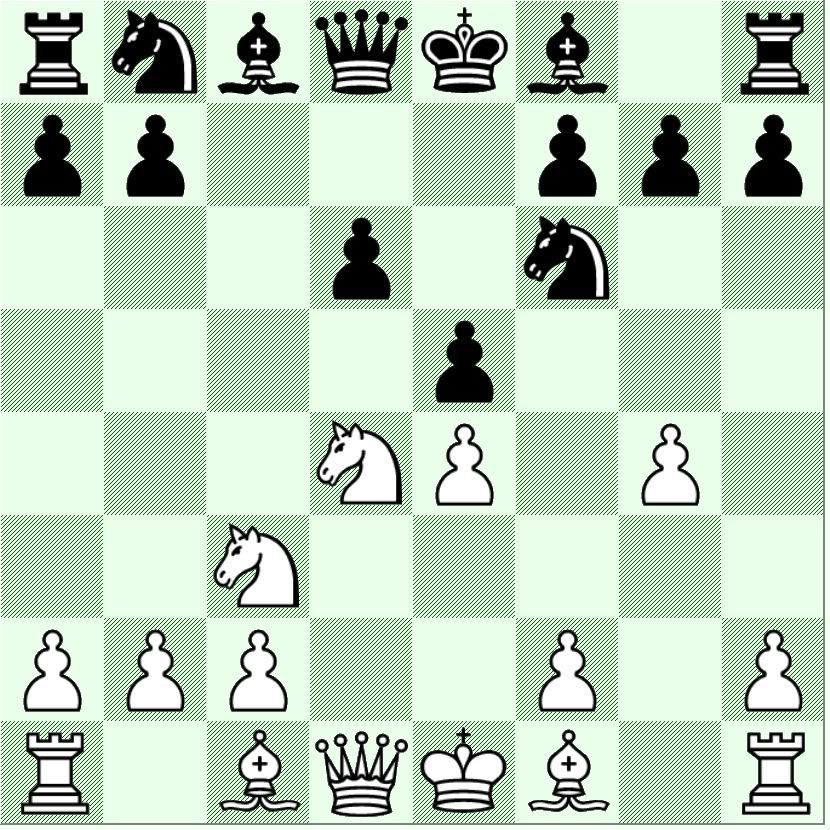After 1.e4 c5 2.Nf3 d6 3.d4 cxd4 4.Nxd4 Nf6 5.Nc3 e6 6.g4 e5 we have the starting position.

Two moves appear in the Encyclopedia of Chess Openings:
7.Nf5
7.Bb5
My opening book MT IV indicates that Bb5 is twice as popular as Nf5, but that Nf5 scores much better. The main line in ECO from Nf5 ends with a substantial edge for White. 7.Bb5 breaks into three lines in ECO--two end as unclear, one ends with a substantial advantage for White.
7.Nf5
ECO gives only 7...h5 in reply to 7.Nf5, but two other moves played in high level games in 2008 complicate my preparations to play the White side.
7...g6 was played against Bobby Fischer in 1964 in a simul, and Fischer lost. It was played a few more times until Sequera Paolini-Alvarez, San Felipe 2008, which Black won.
7...Nc6, a standard Sicilian move, appears to have been introduced into practice in the Bundesliga: Gharamian-Nisipeanu, Trier 2008. That game ended in a short draw. However, a reasonable appearing novelty in a more recent game went badly for White. Perhaps these games deserve closer attention before moving on to 7.Bb5.
Adla,D (2508) - Meier,G (2641) [B81]
TOP 16 Poule Haute Le Port Marly FRA (10), 30.05.2009
1.e4 c5 2.Nf3 e6 3.d4 cxd4 4.Nxd4 Nf6 5.Nc3 d6 6.g4 e5 7.Nf5 Nc6 8.Bc4N
8.Bg5 h6 9.Bxf6 Qxf6 10.Qd2 g6 11.Ne3 h5 12.gxh5 Rxh5 13.Nb5 Qd8 14.0–0–0 Rh4 15.Bc4 a6 16.Nxd6+ Qxd6 17.Qxd6 Bxd6 18.Rxd6 Ke7 19.Rd2 Rxe4 20.Nd5+ Kf8 21.Nb6 Rb8 22.Bd5 Rb4 Gharamian,T-Nisipeanu,L, Trier 2008 ½–½
8...Be6 9.Bb3 h5 10.Bxe6 fxe6 11.Ne3 hxg4 12.Nxg4 Nd4 13.Nxf6+ Qxf6 14.Be3 Nf3+ 15.Ke2 a6 16.Qf1 Be7 17.Qg2 Rf8 18.Nb1 d5 19.exd5 exd5 20.Nd2 e4 21.c3 a5 22.Kd1 a4 23.Nxf3 Qxf3+ 24.Qxf3 Rxf3 25.Kc2 Kd7 26.h4 Rh8 27.Rag1 Bf6 28.Rg2 Ke6 29.Kd2 Rxh4 30.Rxh4 Bxh4 31.Rxg7 Bxf2 32.Bxf2 Rxf2+ 33.Kc1 b5 0–1














Just looking at the diagram, Bb5 looks incredibly strong compared to playing Nf5 (yet).
ReplyDeleteI would also prefer 7.Bb5, but I have usually no chance to play Keres Attack in my games :(
ReplyDelete